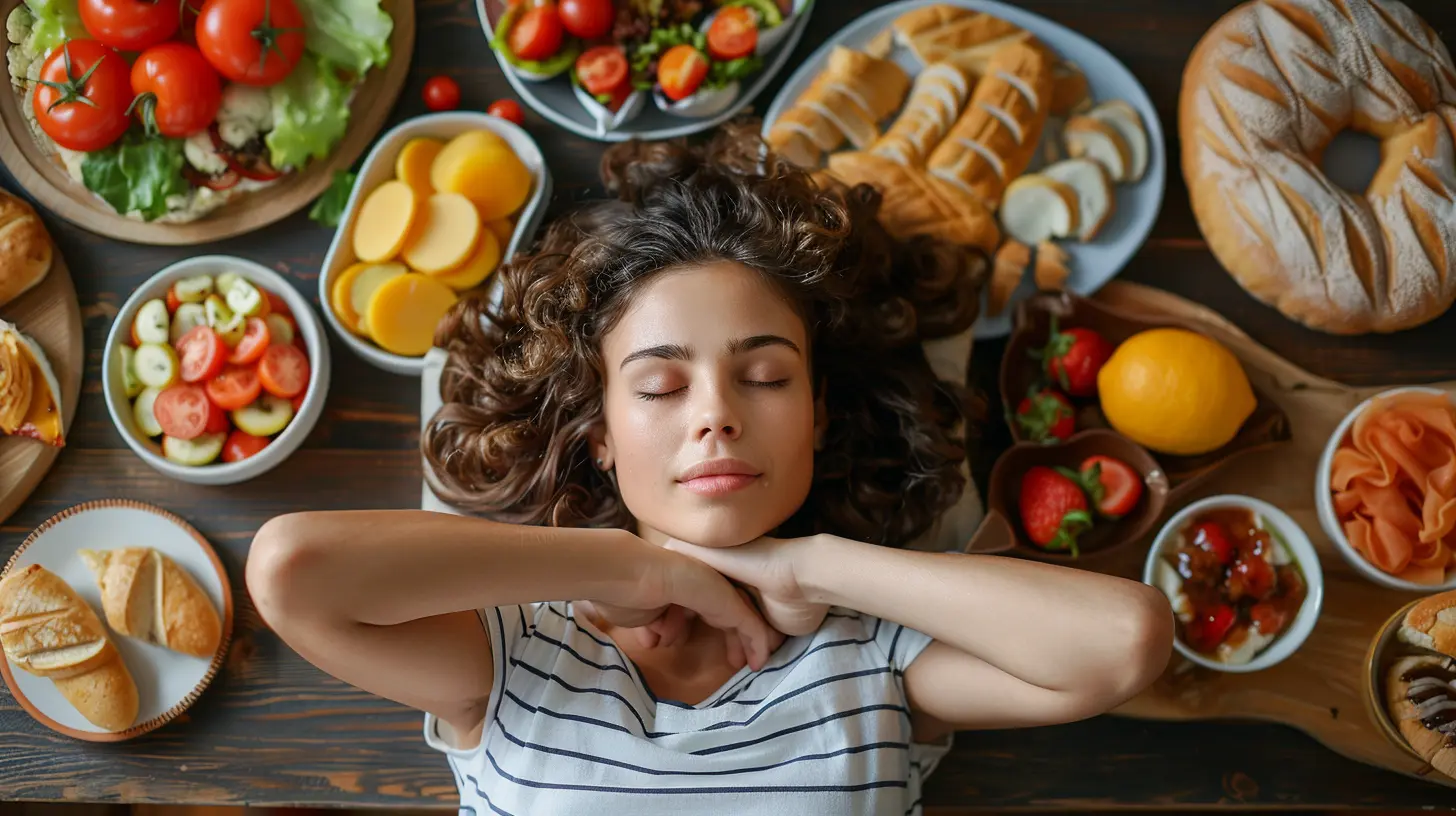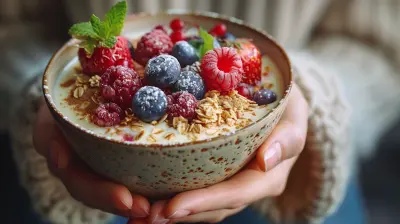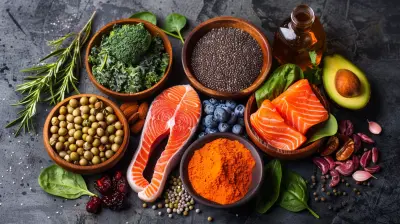Foods That Can Either Help or Hinder Your Sleep
20 September 2025
We’ve all been there—you crawl into bed after a long day, turn off the lights, and… nothing. Your brain is running marathons, your body just won’t relax, and sleep feels like a distant dream. What if I told you that what you eat might be playing a much bigger role than you think?
Yep, your dinner plate could either be your best friend or your worst enemy when it comes to catching quality Zzz’s. So, let’s dive deep into the science-backed, no-nonsense truth about foods that can either help or hinder your sleep. Trust me—once you see what’s on this list, your midnight snack choices might look a little different.
Why Your Diet Matters for Sleep
Food is fuel, right? It powers our workouts, keeps us going during long meetings, and even affects our mood. But here's the kicker: it also plays a major role in how well (or how poorly) you sleep.Here’s the thing—your body runs on a biological clock known as your circadian rhythm. This rhythm controls your sleep-wake cycle, and it’s highly sensitive to things like light exposure and—yep, you guessed it—what’s going on with your diet.
Some foods contain nutrients that promote the production of melatonin and serotonin (the hormones that regulate sleep). Others contain stimulants or compounds that mess with your rhythm. So let’s get into the good, the bad, and the “heck no” when it comes to foods and sleep.
Sleep-Supporting Superstars: Foods That Help You Sleep
Let’s start with the good news. There are plenty of foods that can actually help you wind down and improve the quality of your sleep. Here’s what you want to add to your grocery list:1. Tart Cherries
Tart cherry juice is basically melatonin in a bottle. These little fruits are naturally rich in melatonin, which helps regulate your sleep cycle. Several studies have shown that drinking tart cherry juice before bed can not only help you fall asleep faster but also sleep longer.Tip: Have a small glass of tart cherry juice about an hour or two before bed. Just watch the sugar content—go for the unsweetened kind if possible.
2. Almonds (and Other Nuts)
Almonds, walnuts, and pistachios are all rich in sleep-promoting nutrients like magnesium and melatonin. Magnesium, in particular, helps relax muscles and calm the nervous system, which is exactly what you want right before bed.Bonus: Nuts are also a good source of healthy fats and protein, which help keep blood sugar levels stable overnight.
3. Kiwi
This humble green fruit is a secret weapon for better sleep. Kiwis are loaded with antioxidants and serotonin boosters. In one study, people who ate two kiwis an hour before bedtime fell asleep faster and slept more deeply.Try this: Slice up some kiwi in Greek yogurt for a sleep-friendly nighttime snack.
4. Bananas
Think of bananas as nature’s sleeping pill. They’re packed with magnesium and tryptophan—an amino acid that converts to serotonin and then into melatonin.No stress: You don’t need a fancy recipe. Just eat one plain before bed. Simple and effective.
5. Oatmeal
Sure, you might think oatmeal is for breakfast, but it can be a great bedtime snack too. Oats are a natural source of melatonin and complex carbs, which can help your body absorb tryptophan more effectively.Caution: Avoid loading it with sugar. Go for plain oats and top with a few slices of banana or a pinch of cinnamon.
The Sleep Saboteurs: Foods That Can Mess With Your Rest
Now for the bad news. Some foods are the equivalent of hitting “snooze” on your body’s natural sleep cycle—only there’s no waking up refreshed. Let’s go through the biggest offenders.1. Caffeine (It’s Not Just in Coffee)
Okay, this one’s obvious. Caffeine is a stimulant, and its effects can linger in your body for up to 8 hours. But it’s not just in coffee—it’s also in tea, chocolate, soda, and even some over-the-counter meds.Pro tip: Keep an eye on labels and try to cut off caffeine at least 6-8 hours before bedtime. Afternoon lattes? Not worth it.
2. Alcohol
It’s super tempting to have a glass of wine to relax, but alcohol can seriously disrupt your sleep. While it might help you fall asleep faster, it reduces REM sleep and increases the chances of you waking up in the night.Think twice: If you want to sleep like a baby, it’s best to skip the nightcap.
3. Spicy Foods
Hot peppers and spicy curries might taste amazing, but they can cause major indigestion and increase your body temperature—two things that make staying asleep pretty tough.Rule of thumb: Keep spicy dinners for earlier in the day. Your stomach (and sheets) will thank you.
4. Heavy or Fatty Meals
Foods that are high in fat take longer to digest, which means your body is working overtime just when it should be powering down. Fast food, fried dishes, and greasy takeout are all culprits here.Tip: Try to finish dinner at least 2–3 hours before bed to give your body time to digest.
5. Sugary Snacks
That cookie or bowl of ice cream might seem like a sweet way to end the day, but sugar causes blood sugar spikes and crashes that can wake you up in the middle of the night.Swap it for: A small square of dark chocolate or a handful of berries—they’ll satisfy your sweet tooth without the sugar crash.
Timing Matters Too
It’s not just what you eat—it’s when you eat. Ever tried going to bed super full or completely starving? Either way, it’s tough to sleep well. Here’s how to hit the timing sweet spot:- Don’t eat large meals right before bed. Shoot for a light, balanced snack if you're a little hungry.
- Avoid eating at least 2 hours before sleep. This gives your digestive system time to work through your last meal.
- Keep a consistent eating schedule. Just like your sleep schedule, your body likes routine with meals too.
Hydration and Sleep: The Underrated Relationship
Let’s talk fluids. Staying hydrated throughout the day helps your body work like a well-oiled machine. But too much water right before bed? You’ll be making bathroom runs at 3 a.m.- Hydrate during the day, not right before bed.
- Cut back on fluids 1-2 hours before sleep to avoid nighttime interruptions.
And don’t forget—some types of herbal teas like chamomile, valerian root, or lavender can help you wind down without overstimulating your system.
Bonus Tips to Maximize Your Sleep Diet
Eating the right foods helps—but for best results, pair them with smart habits. Here are a few extras that can keep your nights restful:- Keep it cool. Lowering your room temperature helps signal your body it's time to wind down.
- Unplug early. Blue light from screens can mess with melatonin production.
- Stay active. Regular exercise (just not too close to bedtime) boosts deep sleep.
- Stress less. Meditation, journaling, or deep breathing can relax your nervous system before bed.
Final Thoughts: Your Plate Shapes Your Pillowtime
The connection between food and sleep is real, and it’s something we often overlook. Think of your meals as setting the stage for how your night will go. Want to fall asleep faster and wake up refreshed? Start by making sleep-friendly choices at the dinner table.Remember, you don’t need to overhaul your whole diet overnight. Even small changes—like switching that late-night sugary snack for a banana, or cutting off caffeine earlier—can make a world of difference.
So the next time you can’t sleep, don’t just blame stress or your mattress… maybe take a peek in your fridge, too.
all images in this post were generated using AI tools
Category:
Sleep DisordersAuthor:

Angelo McGillivray
Discussion
rate this article
1 comments
Xavi McLemore
Fascinating insights! I’m eager to try incorporating these foods into my bedtime routine. Thanks!
September 29, 2025 at 2:39 PM

Angelo McGillivray
Thank you! I’m glad you found the insights helpful. Enjoy experimenting with those foods!


